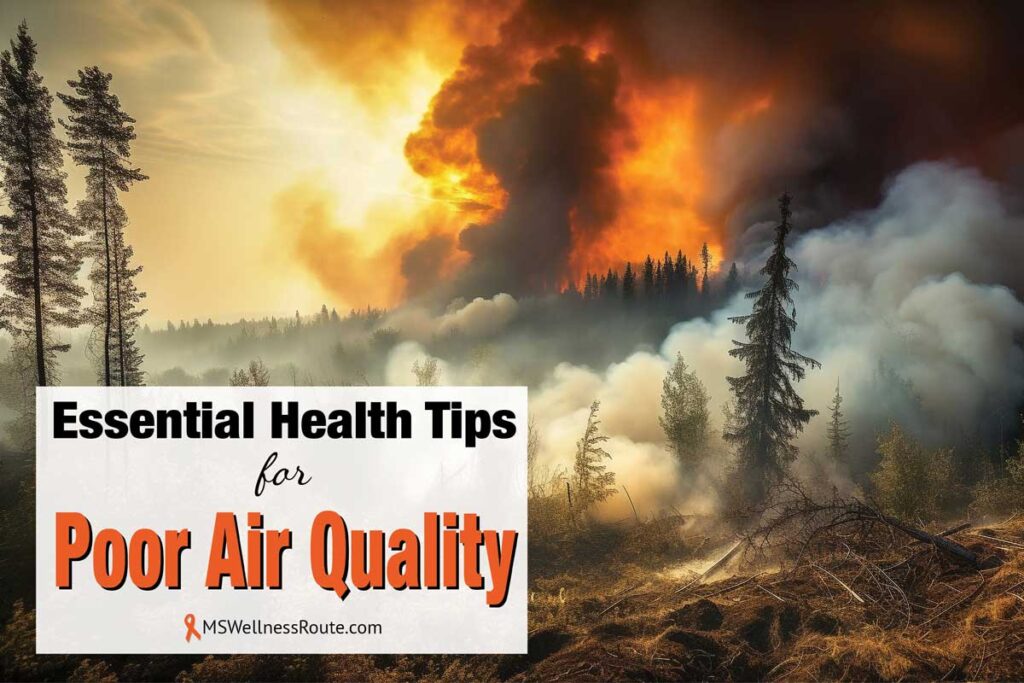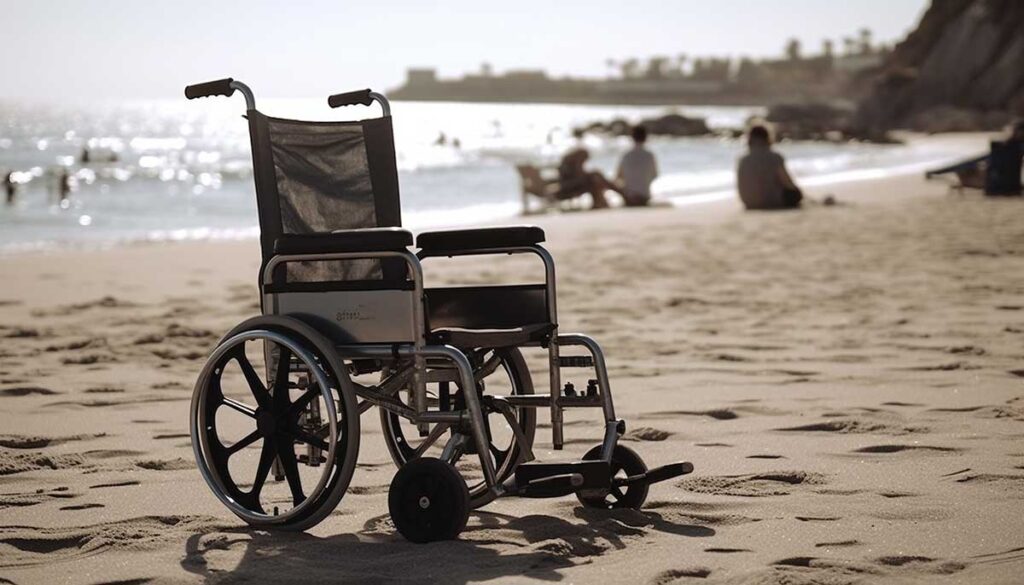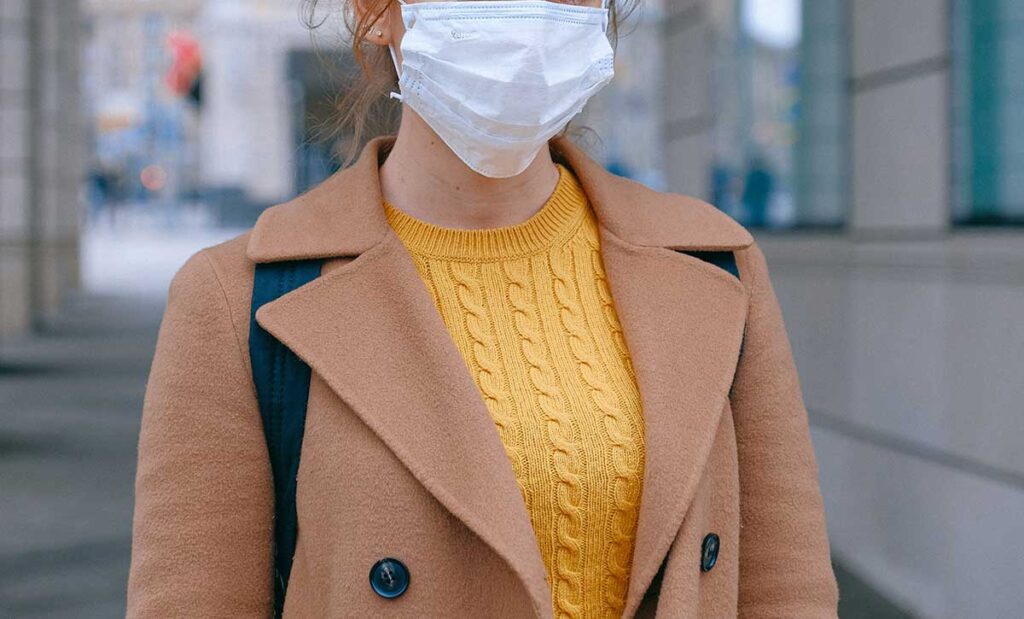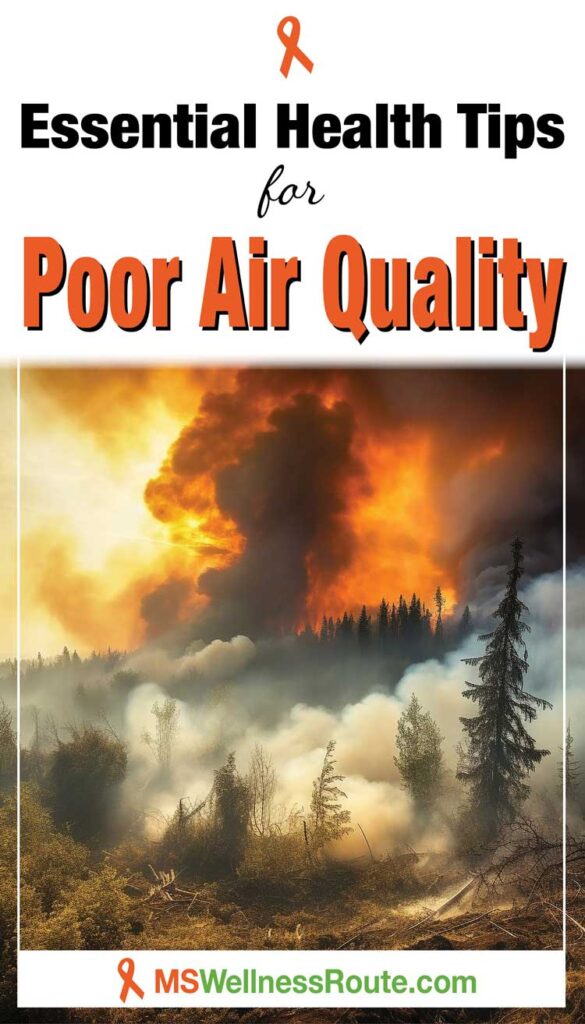Last Updated on November 13, 2023 by Cathy

Summer season is here and with it comes the looming threat of fire season. This week, Canada has already witnessed the threat of wildfires. It’s billowing smoke clouds spreading as far as Norway. The smoke is blanketing the midwest and eastern coast of the United States. People are wearing masks amidst the worst air quality caused by fires.
I’m lucky because I live in the west where I’m not affected. But, I live in a rural area where the threat of wildfires is something we deal with yearly. We put a huge firebreak around our area a couple of weeks before they start selling fireworks. That’s when fire season starts for us.
Every August and September the blue sky turns into a smokey unhealthy orange. It’s due to wildfires coming from our state and neighboring states. News reports tell people to stay indoors to avoid the unhealthy air.
It’s not only the smoke from the burning trees people have to be careful about. It’s what those wildfires are also burning that makes it dangerous. Which includes houses and commercial buildings, releasing toxic chemical particles into the air.
Poor air quality poses a grave danger to our health. The microscopic particles and toxic gases from the smoke cause respiratory problems. They also cause cardiovascular complications and a host of other debilitating health risks. The smoke compromises your immune system.
Multiple Sclerosis

Image by vecstock on Freepik
For people with multiple sclerosis (MS), it could cause an exacerbation (flare or attack). Smoking is one of the triggers that causes MS due to cadmium, a heavy metal. Wildfires also release cadmium into the air. The smoke enters the lungs into the bloodstream and then into the brain. This triggers an inflammatory response and oxidative stress. Leading to adverse effects on the central nervous system.
Poor air quality can worsen MS symptoms by disrupting the delicate balance of neurotransmitters. Exposure to wildfire smoke can result in an increase in inflammation. This can make MS symptoms worse. The toxic gases from wildfires can cause detrimental effects on people with MS.
Protect Yourself From Poor Air Quality

Photo by Anna Shvets on Pexels
Staying indoors out of the smoke is obvious but there are other things you can do to protect yourself from poor air quality due to wildfires, here are some steps you can take:
1. Stay Informed
To stay informed, keep track of local air quality reports and wildfire alerts. Environmental agencies or health departments are usually responsible for issuing these updates. It will help in understanding the severity and taking necessary precautions.
2. Limit Outdoor Activities
When the air quality is poor due you should minimize outdoor activities. Especially any activity that causes you to breathe harder such as exercise. Even walking can make you breathe harder especially if you struggle with mobility.
3. Create a Clean Indoor Environment
Keep doors and windows closed to prevent outdoor smoke from coming into your home. Use high-efficiency particulate air (HEPA) filters in air purifiers or HVAC systems. Avoid activities that generate indoor pollution, such as smoking or using strong chemicals.
Use simple ingredients you probably already have such as baking soda and vinegar. To learn more read: Easy Green Cleaning Products That Work!
4. Use Air Purifiers
Consider using portable air purifiers equipped with HEPA filters in your home. Especially in rooms where you spend most of your time, such as bedrooms and living areas. These purifiers can help remove smoke particles and improve indoor air quality.
I own an AirDoctor because it removes particulate matter from wildfires. It also removes mycotoxins (mold).
5. Create a DIY Clean Room
If the air quality is severe and bothering you, create a designated clean room. Use weatherstripping, plastic sheets, or towels to seal off windows, doors, and vents. Keep the clean room equipped with an air purifier and essential supplies.
6. Wear Appropriate Masks
If you must go outside, wear a mask designed to filter fine particles. Use a N100, N95, or N99 mask, that can offer some protection. Make sure the mask fits properly when exposed to smoky conditions.
7. Stay Hydrated
Drink plenty of water to keep your respiratory system moist. This will help to support your overall health during periods of poor air quality. Proper hydration helps reduce potential respiratory irritation caused by the smoke. It also helps keep your body to stay hydrated and flush out toxins.
8. Seek Medical Advice
For severe symptoms such as difficulty breathing, or persistent coughing, seek medical help. They can provide personalized advice.
Vitamin C

We usually think of vitamin C when we have a cold. But, vitamin C protects you from more than that. It is an antioxidant that protects your immune system and respiratory health. It also protects your brain and central nervous system from radical damage.
Smoke from wildfires cause free radical damage. When inhaled, these free radicals cause oxidative stress in the body. And oxidative stress contributes to the breakdown of myelin.
Managing oxidative stress is important. You can do this by adopting a healthy diet rich in antioxidants. Also engaging in regular exercise, and reducing exposure to environmental toxins.
Foods high in antioxidants according to the USDA:
- Wild blueberries
- Red delicious apples, with skin
- Granny smith apples, with skin
- Prunes
- Artichokes, boiled
- Cranberries
- Pears
- Pecans
- Plums
- Cultivated blueberries
The vitamin C supplement I use is by Solaray. It also contains rose hips which is also packed with vitamins C, E, and K.
Other helpful supplements include:
- Lomatium Root Extract has been used historically by Native Americans, mostly as a treatment for respiratory illness
- Mullein Leaf supports healthy respiratory function
Essential Health Tips for Poor Air Quality
Your best approach is to take proactive measures to minimize exposure to poor air quality. Protect yourself during wildfire events by staying vigilant and prioritizing your health.
Eating a nutrient-rich diet is beneficial for your health. It is also important to take steps to protect yourself from the effects of poor air quality. A healthy diet and staying indoors is your best option during unhealthy air alerts. And, if needed seek medical advice.

Free Wellness Library!
Subscribe for free and I’ll send you the password to my secret library filled with many printables for your wellness journey.
Want to remember this health tip? Pin it to your Pinterest board!

Image by vecstock on Freepik
Resources:
https://www.sciencedirect.com/topics/pharmacology-toxicology-and-pharmaceutical-science/lomatium
Essential Health Tips for Poor Air Quality





